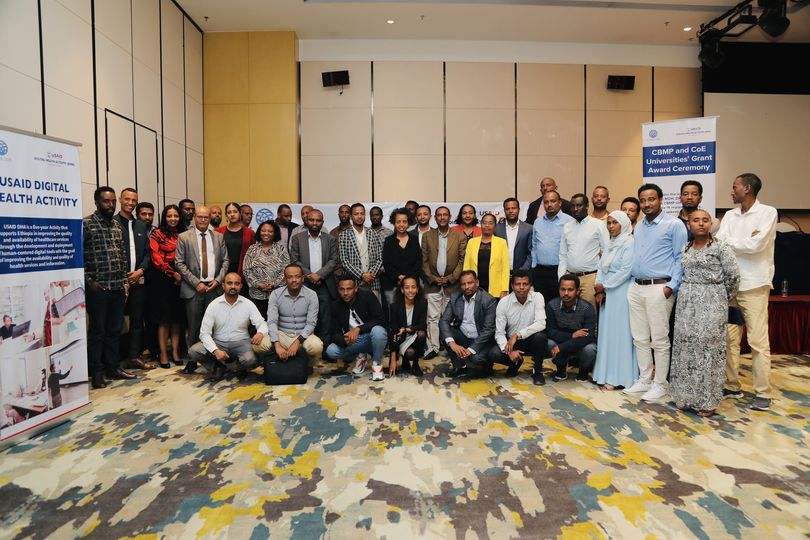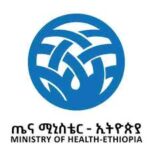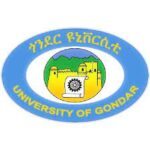Overview
Supported by USAID-funded Digital Health Activity (DHA), the University of Gondar works on the IR implementation and interoperability of digital health systems in Ethiopia with the vision of building a sustainable, resilient, and interoperable health information system (HIS) that ensures the entire health sector has the data, analytics, and skills necessary to improve the health and wellbeing of all Ethiopians.
The University of Gondar, partnering with the DHA of JSI and funding from SAID, provides technical HIS support at the point of health service delivery, i.e., PHCUs and health facilities, and supports the interoperability of HIS in the Federal Ministry of Health, Ethiopia.

CBMP and COE Universities’ Grant Award Ceremony
What we do?
The overall purpose of this work is to create model woredas by building a culture of data use for decision-making at the point of service delivery and supporting the MOH’s initiative of making digital systems interoperable. The university employs three major intervention strategies to enhance data use culture at the point of health service delivery;
- capacity building of the health workforce
- context-specific data use improvement strategies
- evidence generation and best practice documentation
I. Capacity Building
III. Evidence Generation and Documentation
These include tailored capacity-building activities for health workers at woredas and facilities. Mentorship and onsite supportive supervision are also conducted by collaborating with regional health bureaus and woredas. Virtual mentorship is also provided whenever there is a need to remotely follow progress and provide technical support. We also implement innovative data use improvement approaches including integrating strategic problem analysis, data week forums, and performance-based recognition.
II. Interoperability
We also work interoperability of the HIS in Ethiopia.
The University of Gondar also works on generating evidence using embedded implementation research on HIS and digital health for evidence-based decision-making. Digital health implementation learnings are documented for decision-makers at national and subnational levels to use for program improvement. The implementation of a non-monetary performance-based incentive (which was implementation research conducted by UoG with DDCF funding) used by Woredas can be a good example of this.
IV. Monitoring, Evaluation, and Learning (MERL)
Monitoring and evaluation are important activities that the university conducts to track progress, evaluate achievements, and document best practices for scale-up. The woredas are also supported to expand their M&E skills to monitor and document their activities. The MERL activities include measuring Woreda’s IR pathway, periodic review meetings, regular supportive supervision, and documenting best practices and success stories
Achievements
- Development of Sustainable and Interoperable HIS
- Capacity Building
- Enhanced Data Use Culture
- Evidence Generation and Best Practice Documentation
- Monitoring, Evaluation, and Learning (MERL)
- Support for the Federal Ministry of Health, Ethiopia
Where We Work
In addition to the 22 woredas covered in CBMP, this work covers selected 2 woredas of the Amhara region with the aim of scaling up to additional woredas.
Collaborators


